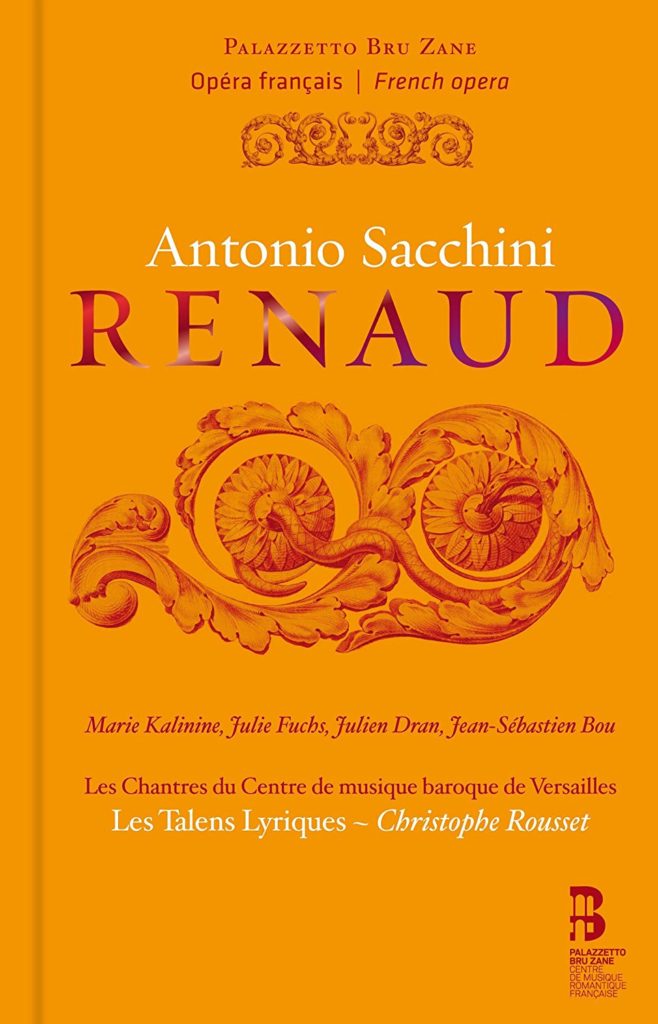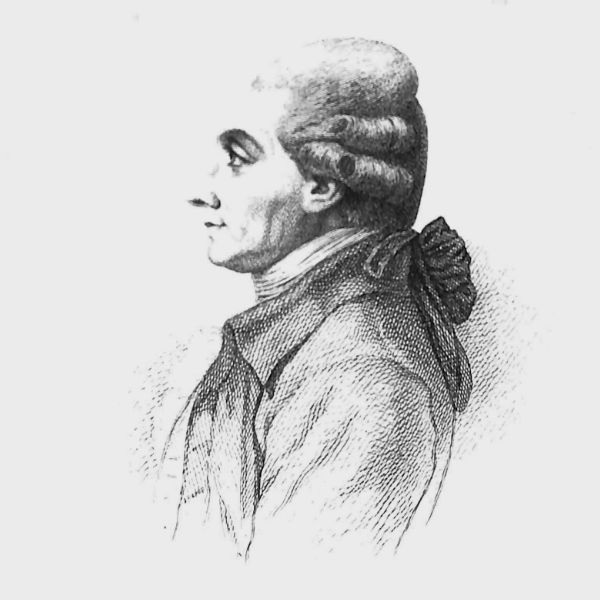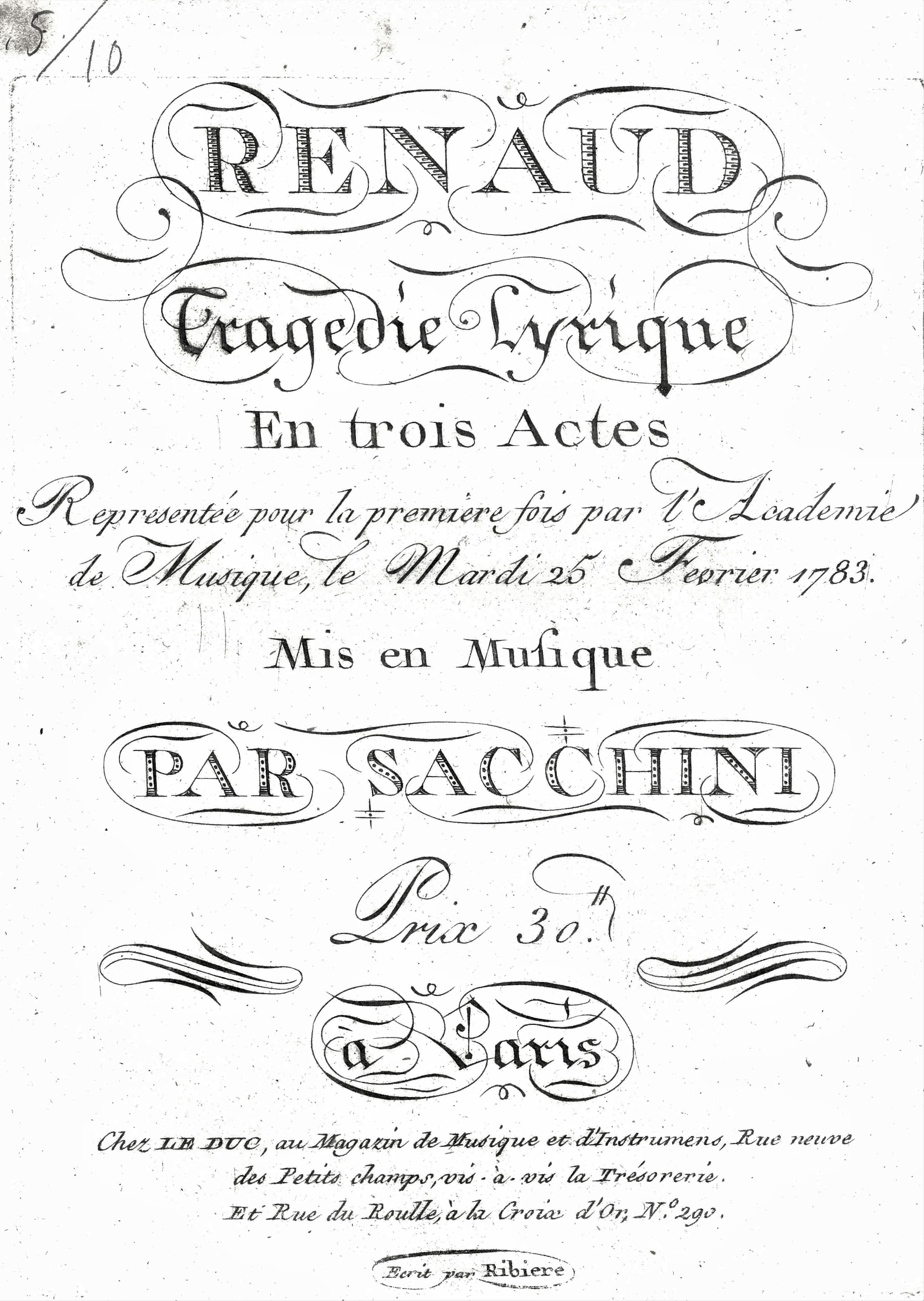Renaud

LES TALENS LYRIQUES
Christophe Rousset conductor
with Marie Kalinine, Julien Dran, Jean-Sébastien Bou, Pierrick Boisseau, Julie Fuchs, Katia Velletaz, Chantal Santon-Jeffery, Jennifer Borghi, Cyrille Dubois, Pascal Bourgeois
Renaud, first performed at the Académie Royale de Musique (the Paris Opéra) on 25 February 1783, marked Antonio Sacchini’s Parisian début. The opera was a great success, with over 150 performances, until 1799. Written while French opera was been torn apart by the quarrel between the Gluckists and the Piccinnists, it earned its author the honour of being chosen as the new favourite of Marie-Antoinette (to whom the work is dedicated). The plot of this three-act opera, loosely based on Torquato Tasso's Jerusalem Delivered, takes up the story of Armide, the last tragédie en musique by Lully and Quinault (1686), of which Gluck had proposed a new version in 1777. It tells of the love of Armide (Princess of Damascus and a sorceress) for the crusader Renaud; a blind love that leads Armide to use her magic and to betray her own people. However, the tragedy ends in reconciliation, with a ‘ballet général’ that was originally choreographed by Maximilien Gardel. Rosalie Levasseur took the part of Armide at the première but, since she was pregnant, she was replaced from the third performance onwards by the new star of the Paris stage, Antoinette Saint-Huberty.
Contents of the book
Benoît Dratwicki, Foreigners at the Académie Royale de Musique (1774-1789)
Benoît Dratwicki, Sacchini and the Sacchinists at the heart of the quarrels
Alexandre Dratwicki, A controversial new work
The reception of Renaud, an eyewitness account, 1783
Synopsis
Libretto


 Torna indietro
Torna indietro  newsletter
newsletter webradio
webradio replay
replay




